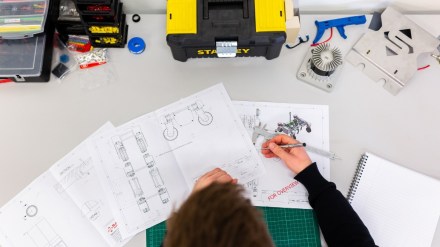Engineering internships are becoming a vital part of a student’s education, giving them real-world experience earlier than the usual final-year internships.
Newton School of Technology – Rishihood University, claims to have placed 93% of its students in early internships. The highest stipend went up to Rs 1.5 lakhs from Google Summer of Code and average stood at Rs 25,000, while top 10% students got Rs 42,000 and top 20% stood at Rs 34,000. At NST, students secure internships by the end of their second year. These aren’t shadowing roles or unpaid projects—they’re real, industry-integrated experiences, Siddharth Maheshwari, co-founder, Newton School, told financialexpress.com. “Our students contribute to live products and research teams while still in college. This early exposure is a core part of our academic structure and pedagogy from Year 1 onward,” Maheshwari said.
Udita, who secured an internship at Razorpay is building an internal Al tool at Razorpay that helps developers turn Figma designs into live code. “My internship at Razorpay has been transformative. I learned to convert design into code seamlessly and to proactively communicate and collaborate, even when faced with new challenges. Every task, no matter how small, became a valuable learning opportunity,” she claimed.
The institute claims that a total of 47 companies have offered internships to its students. “47 different companies that are a mix of startups, product companies and research organisations have offered internships. Examples include – Sarvam AI, DRDO, Razorpay, ISB, Physics Wallah, Zoomcar, Allen Digital and Google Summer of Code,” he said
While responding to a query regarding the remaining 7% of students who haven’t secured internships yet, Maheshwari stated that, “We focus on developing their engineering depth and ability to build real, production-grade software. This is done through 1:1 mentorship, advanced project building and helping them work on meaningful problems that align with their interests.”
Interestingly, Scaler School of Technology sees early internships as a key part of learning, not just something extra. In engineering education, there’s often a big gap between what students learn in class and what actually happens in real jobs. Usually, students only get real-world experience in their final year, which is often too late to fully understand what’s needed at work. “We changed that. Our students start working with real companies as early as their second year, while they are still studying. They work on production-level codebases, collaborate with engineering teams, and solve real problems with real deadlines,” Abhimanyu Saxena, Co-Founder, Scaler and InterviewBit, said.
While responding to a question about career growth and adaptability, Saxena says that students who start internships early are simply different. They adapt more quickly, communicate more clearly and have a better sense of how products work. They understand things like trade-offs in engineering choices and work well with design, sales and product teams. They move faster, ask smarter questions, and are comfortable dealing with uncertainty. These are skills that you can’t really learn from textbooks.
“In short, early internships don’t just bridge the industry-academia gap — they create compounding momentum. That momentum leads to stronger placements, deeper networks, and a head start in building things that actually matter,” he said.
